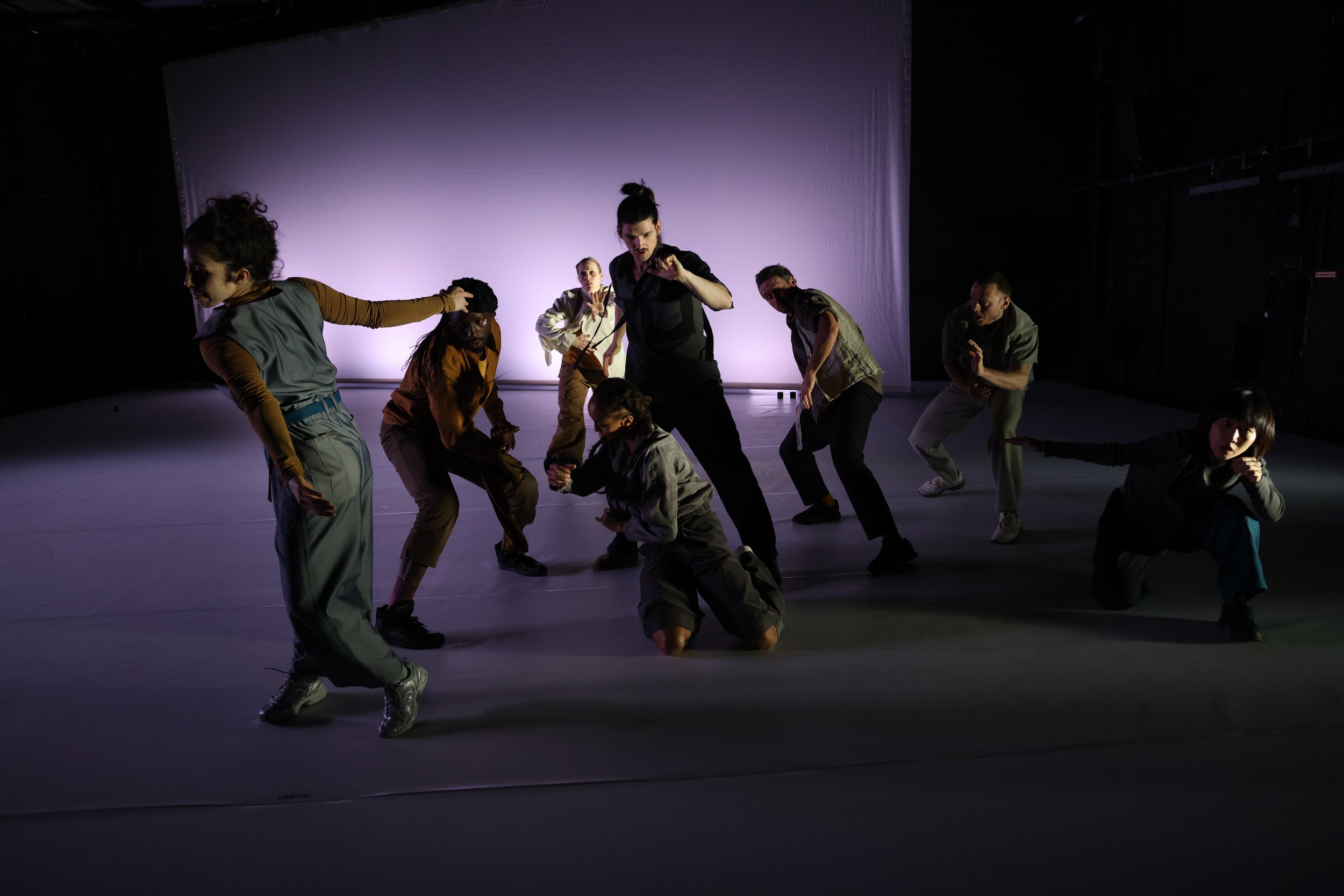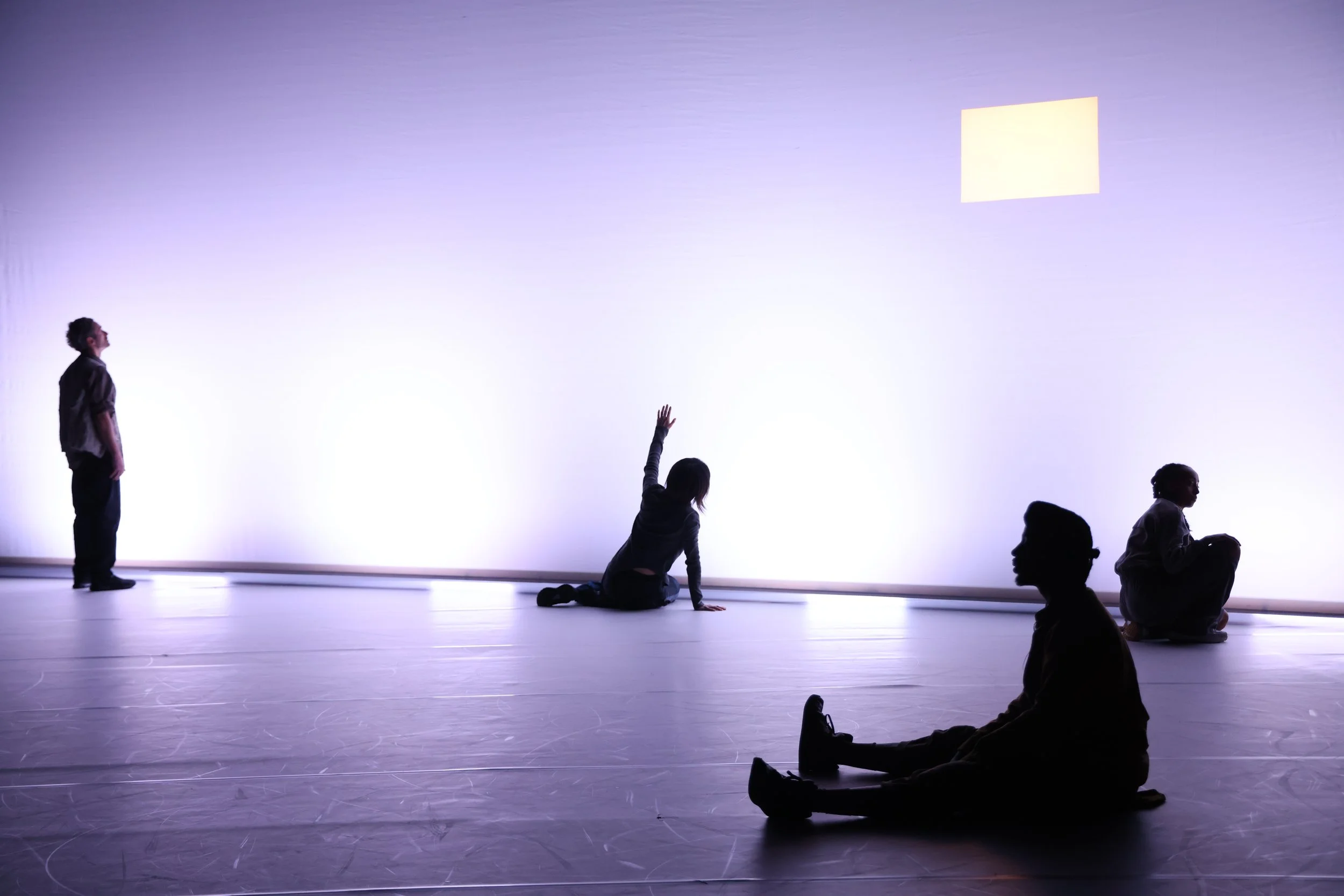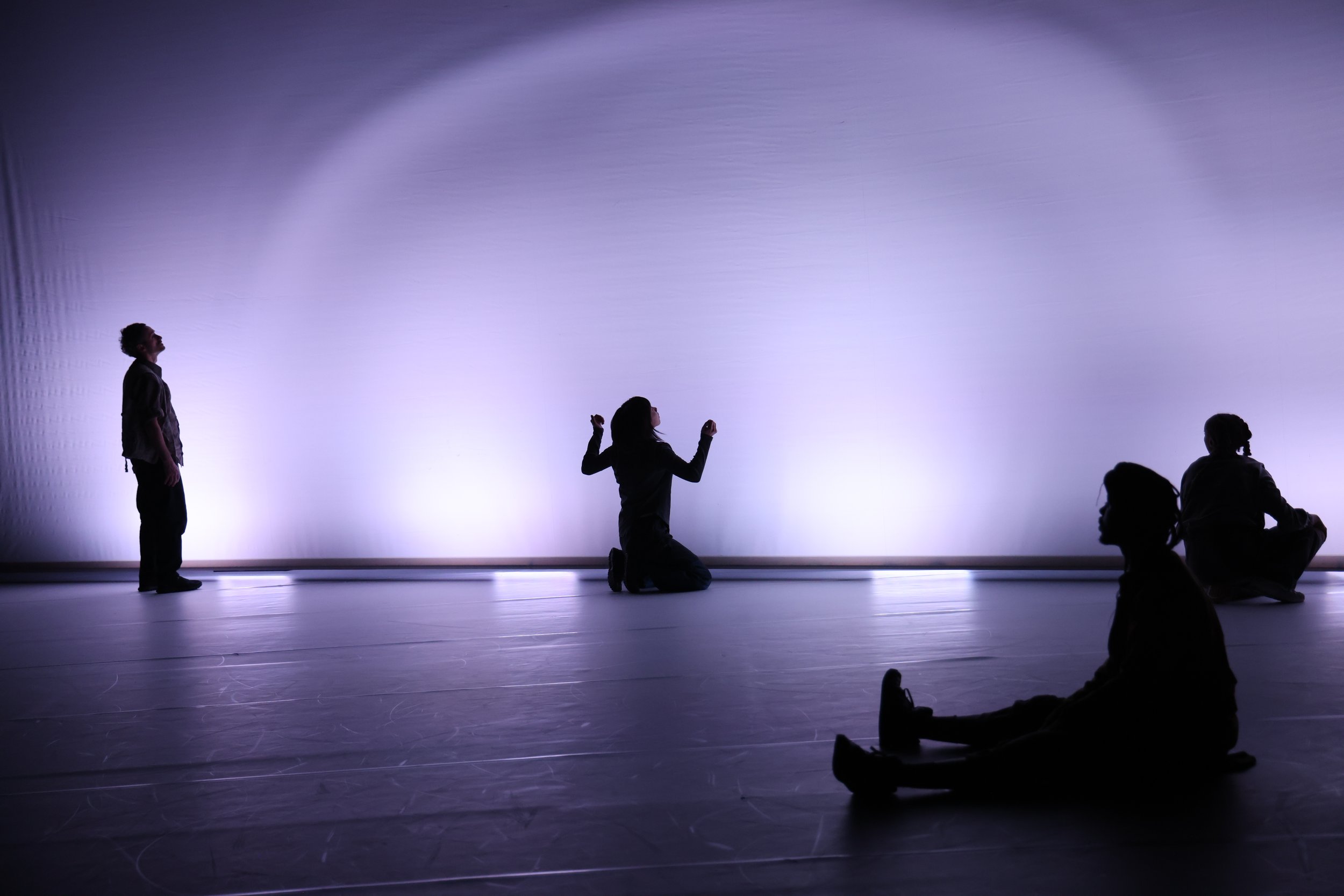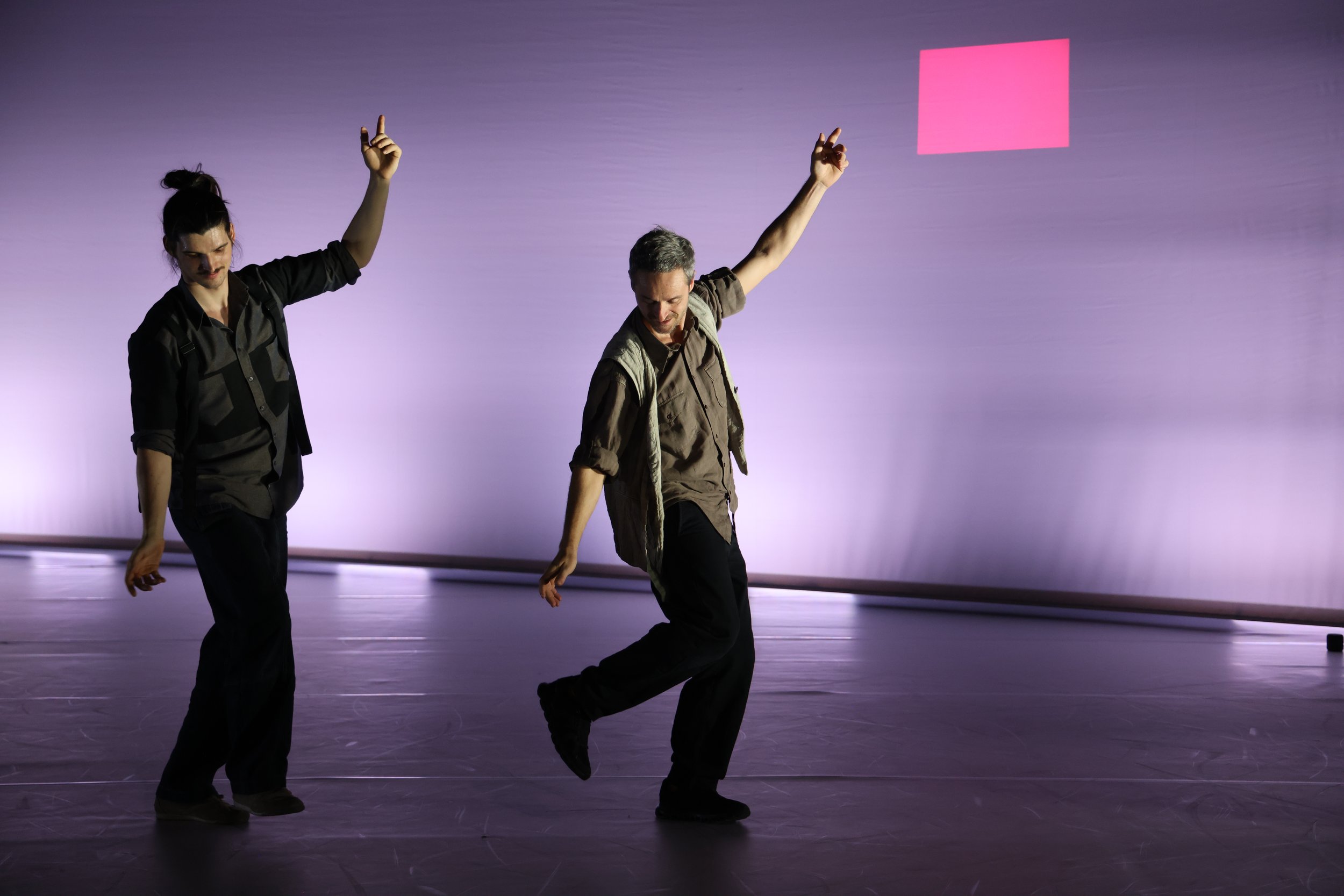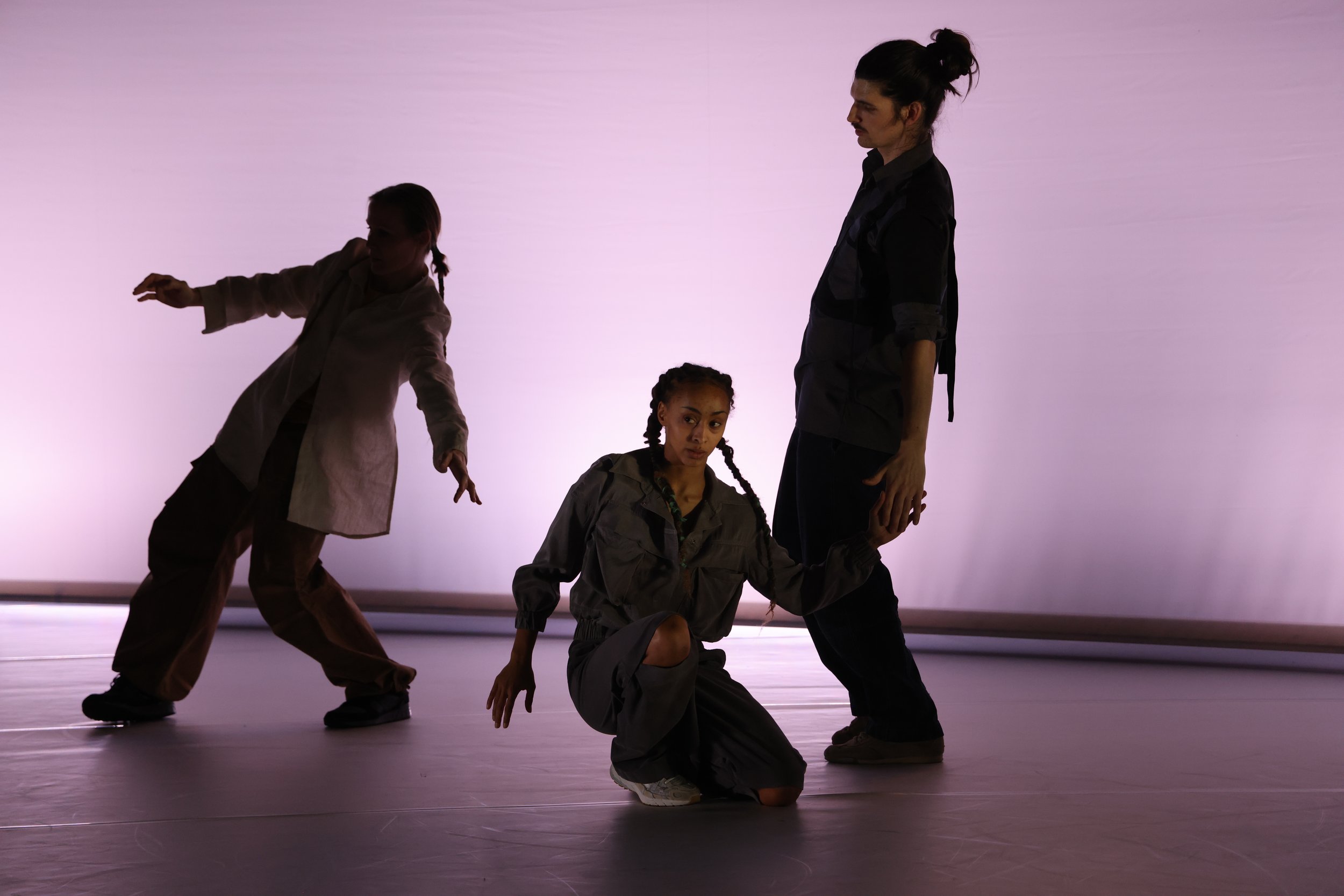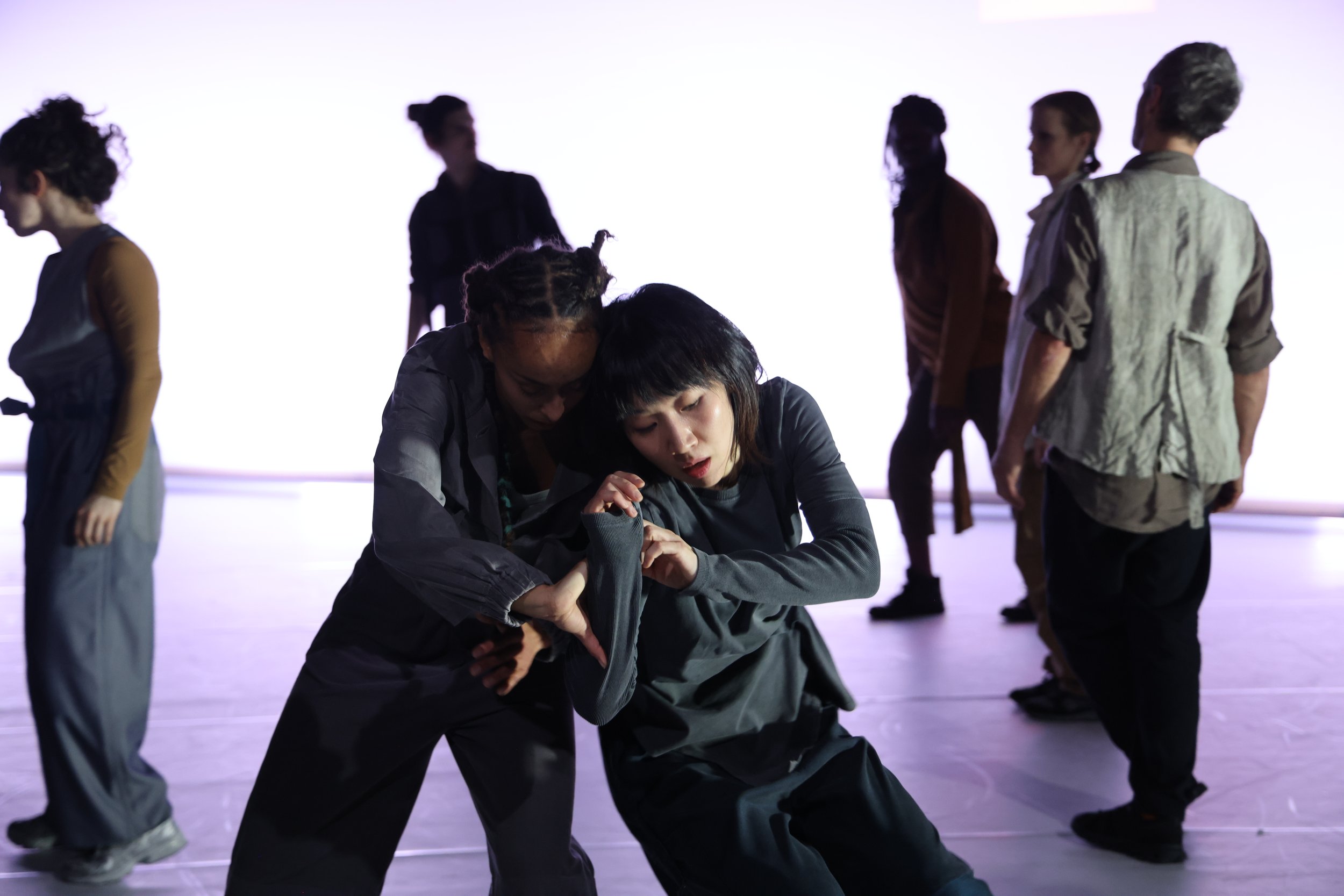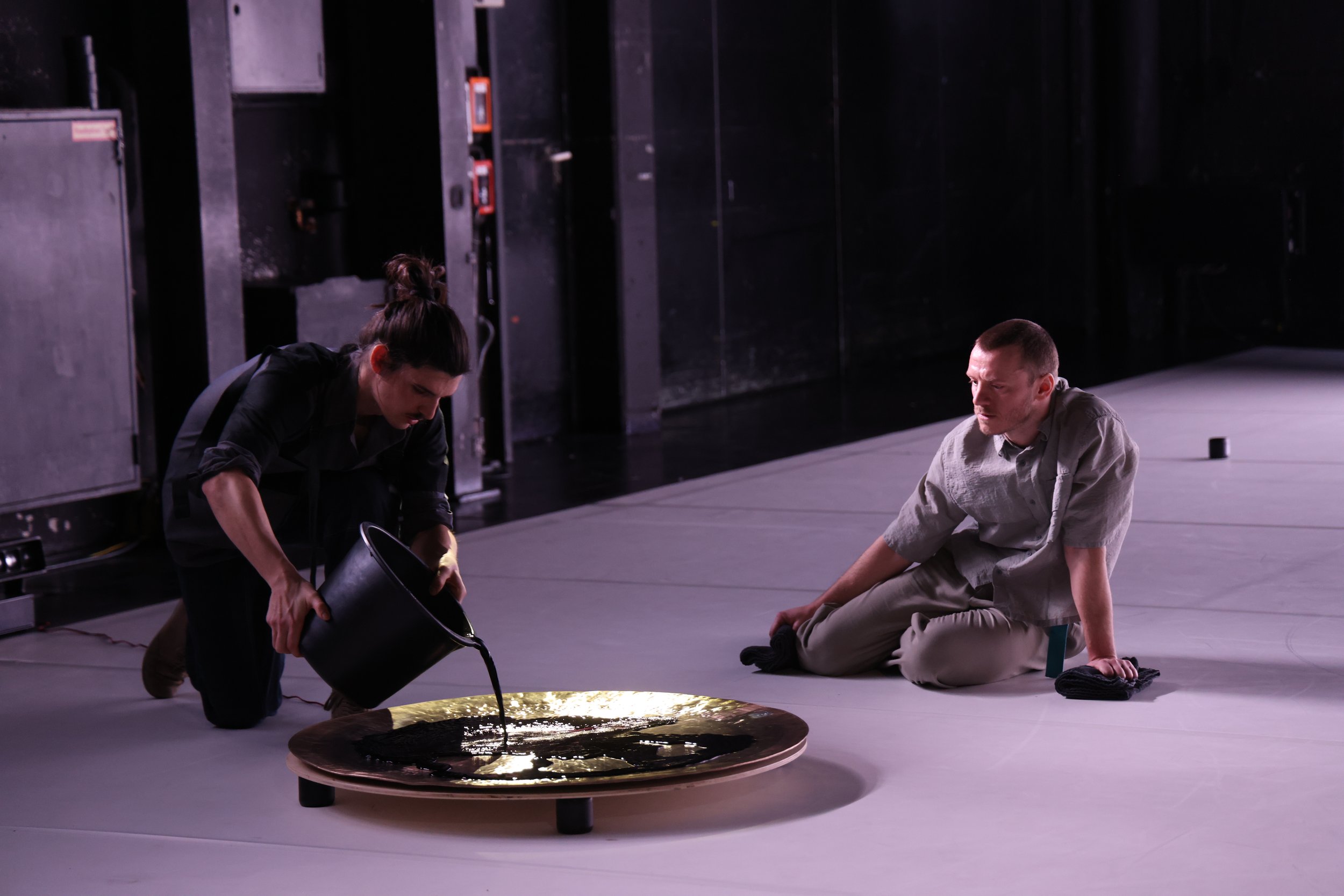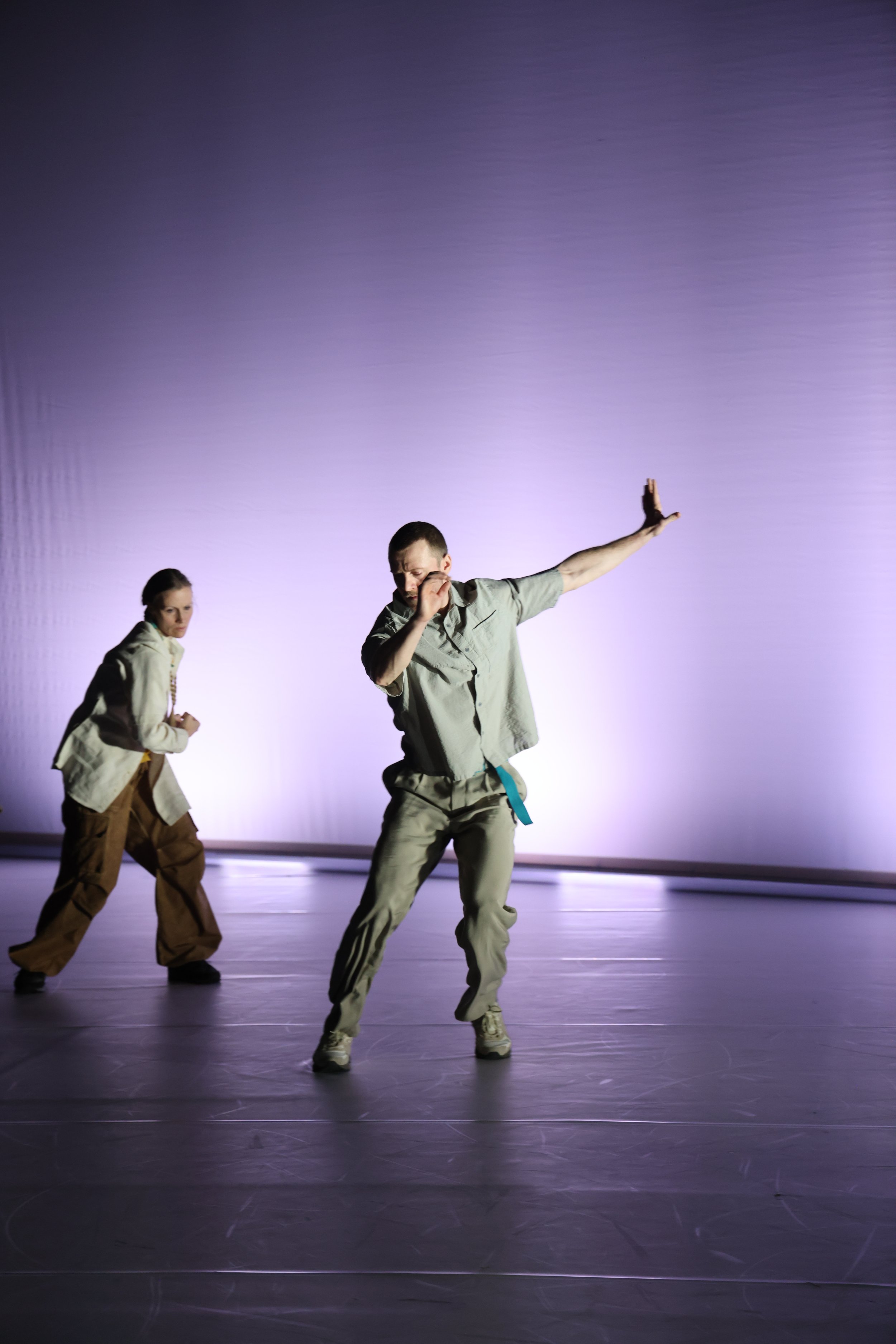
Dawn
When dawn begins to break, the light after the night starts to grow. The faintest stars gradually fade, leaving only the brightest stars, along with Jupiter and Venus—planets of hope and love—visible for a little while longer.
“Everything will be fine” feels like an impossible promise to uphold today. Not everything might be fine, but things can certainly become different from what they are now. In her 2004 book Hope in the Dark, Rebecca Solnit writes that hope is less of a promise and more of a practice—a collective effort that requires shared time and space to take shape. A labour of care, courage and holding each other in the dark, before it dawns.
DAWN, a new creation by Milla Koistinen and Unusual Symptoms, delves into the potentialities, impossibilities and paradoxes of hope as an ongoing, collective practice. Drawing inspiration from the rituals and physical labour and gestures of maintenance, it explores juxtapositions: hope and grief, joy and rage, passion and fatigue - and asks how these contrasting forces can carry us through hardships, both as individuals and as a community. The practice of hope is nourishing but can also become exhausting. And when a body grows tired, it needs another to lean on, to find rest, and to be carried through. Who and what do we hold onto when dawn doesn't seem to be coming for longer than usual?
Unusual Symptoms & Milla Koistinen
Choreography: Milla Koistinen
With and by: Aaron Samuel Davis / emeka ene, Gabrio Gabrielli, Maria Pasadaki, Nora Ronge, Andor Rusu / Eli Hooker, Waithera Lena Schreyeck, Young-Won Song, Csenger K. Szabó
Internship: Pauline Michel
Sound design: Paul Valikoski
Set and light design: Ladislav Zajac
Dramaturgy: Marta Keil
Costume: Kristina Jagodić
Premiere on the 7th of March 2025 at Theater Bremen
“What I take away as the core emotion here – even if it is not the core message – is that this is about a form of community, a vision of collectiveness, of being present together, and the Unusual Symptoms ensemble succeeds in embodying this in a really brilliant manner. They have also been practicing this as their own quality over the last few years.” (Elisabeth Nehring, Deutschlandfunk Kultur, 8 March 2025)
“The ensemble, over the course of one hour and together with the audience, explores the ways in which hope plays a role in the lives of people. This is not so much about hope as a philosophical concept but rather, very palpably, about the permanent hope for a better everyday life – and being disappointed when this expectation shatters. […] Much applause, also for the team.” (Iris Hetscher, Weser-Kurier, 10 March 2025)
“The piece elicited a thoroughly calming sensation in me. […] I liked that very much; the piece is serene and soothing and, therein, a fine change of pace and contrast to the frequently more dynamic and louder types of Unusual Symptoms pieces.” (Frieda Ahrens, Bremen Zwei, 8 March 2025)
“At the sold-out Kleines Haus, in front of a loyal, generation-spanning Bremen dance audience, ‘Dawn’ negotiates the principle of hope as a practice of joint efforts, as a collective experience of labouring-again-and-again and of failing-again-and-again. […] An evening one must stomach but to which one should be exposed. Enthusiastic applause across all generations.” (Ulrike Kolter, 8 March 2025)
“To quote Samuel Beckett: ‘Try again. Fail again. Fail better.’ Yet this does not refer to the artistry involved here – while the evening takes some time until it really hits its stride, the excitement this builds is appealing in itself.” (Andreas Schnell, Kreiszeitung, 15 March, 2025)
Images ©️ Jörg Landsberg



